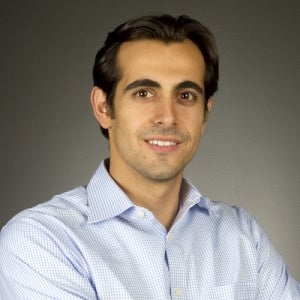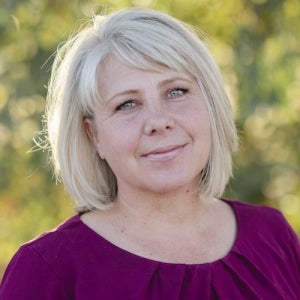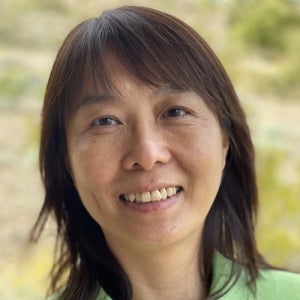Essential reading: Books that edify, elucidate and enthrall

“Today a reader, tomorrow a leader.” — Margaret Fuller
This is the ninth edition of the annual compilation of books recommended to students by faculty and staff members in the Ira A. Fulton Schools of Engineering.
As in previous years, their assignment remained the same: Select books that point the way to vital knowledge or teach useful or even life-changing lessons — or just suggest a book with an absorbing story that takes readers to fascinating places and times.
There’s a bit of an unplanned twist this time, no doubt an example of the saying “Great minds think alike.” Two professors have — unbeknown to each other — chosen the same book. It’s interesting to compare the contrasting styles in which each describes what they find valuable about the book.
You’ll find more instances of multiple viewpoints on the same books in different years’ editions of Essential Reading. See the links following these recommended reads.
'Essentialism: The Disciplined Pursuit of Less,' by Greg McKeown
Recommended by Mounir El Asmar, an associate professor of construction engineering and management in the School of Sustainable Engineering and the Built Environment

Mounir El Asmar
I was on the phone with a friend, Elie, and I mentioned being overcommitted and stretched too thin. He said he has something for me. The very next day, I received a package at my front door: “Essentialism” by Greg McKeown. Do you feel overloaded, overwhelmed at work or at school? Do you have too many decisions to make? Do you find it difficult saying no? Are you struggling to find that often-unattainable work-life balance? If you answered yes to at least one of these questions, then you should read “Essentialism.” Essentialism is a systematic discipline about better investing your time and energy and only focusing on what really matters to you. Essentialists are powerful observers and listeners who focus only on what is absolutely essential, and eliminate everything that is not.
Also recommended by Marco Santello, a professor of biomedical engineering and director of the School of Biological and Health Systems Engineering

Marco Santello
The original meaning of priority in the English dictionary defined it as a singular word. Today, we are accustomed to the concept of priorities — so many of them that they absorb our time and make us lose sight of what our one priority should be at any given time. Greg McKeown uses his experiences working with CEOs and other leaders of successful and innovative companies to develop his concept of “the Way of the Essentialist.” He provides an approach to releasing ourselves from the trap of unrealistic expectations and the idea that doing more is always better than doing less. Essentialism is about clearing away the clutter in our minds and simplifying rather than complicating our lives. In getting weighed down by a plethora of priorities, McKeown says, we are kept from focusing our energy on the pursuit of what will truly enable us to make the most important contributions we can.
'Spillover: Animal Infections and the Next Human Pandemic,' by David Quammen
'The Founders Mentality,' by Chris Zook and James Allen
Recommended by Kerry Hamilton, an assistant professor of environmental engineering in the School of Sustainable Engineering and the Built Environment

Kerry Hamilton
“Spillover” is relevant at this time, of course, because of the fast-spreading COVID-19 pandemic, which likely originated with animal infections passed onto humans. With skillful storytelling and investigative reporting, David Quammen offers a gripping look at the causes of some related types of recent pandemics — Ebola, SARS, AIDS. Most importantly, the book predicts the daunting challenges we may face with a seemingly growing risk of eruptions of highly contagious new diseases. He also presents an interesting look at some leading disease scientists and how their personalities are reflected in their work.
“The Founders Mentality” is a straightforward and in-depth study of the essential principles of managing — whether it be managing businesses or other organizations. Leaders with a “founder mentality” are able to build cultures that produce the foresight and adaptability necessary to achieve sustainable growth. Students can apply the lessons provided by the authors to formulate their own strategies for both personal growth and well-grounded career planning and management.
'Pattern Recognition,' by William Gibson
Recommended by Prescott Perez-Fox, a lecturer in the graphic information technology program in The Polytechnic School.

Prescott Perez-Fox
A generation of design professionals, myself included, learned more about observing and questioning the world around us from this novel and the adventures of protagonist Cayce Pollard than we did from four years of higher education. “Pattern Recognition” reiterates what we know about our ancient human nature, but crosses that with modern practices in fashion, art, architecture, music, commerce, graphic design, advertising and our entire civilization itself. Funnily enough, the book is now a bit of a period piece. Much like an episode of “Seinfeld” would never have been written in the era of the cellphone, this book would never have been written in the era of YouTube.
The story is essentially a mystery/adventure, so I’ll leave the plot for you to discover. But more than a story of Cayce Pollard and her travels to Russia, Britain, Japan and elsewhere, Gibson’s book explores the principles of pattern recognition itself as a concept. Readers’ worldviews can’t help but evolve as this book turns them into students of critical observation — a valuable skill for students and professionals alike.
'Slaughterhouse Five,' The Sirens of Titan' and other books by Kurt Vonnegut Jr.
Recommended by Konrad Rykaczewski, an associate professor of mechanical engineering in the School for Engineering of Matter Transport and Energy

Konrad Rykaczewski
In these especially troubled times, I highly recommend Kurt Vonnegut’s novels. Vonnegut’s works reflect a deeply sarcastic take on life that is balanced by his sense of humor. When I read his books, I need breaks because I’m laughing too hard. If you are pondering the meaning of all things, his book “The Sirens of Titan” explains it clearly. Absurdity is a theme that runs through Vonnegut’s stories. An outstanding example is “Slaughterhouse Five,” in which the absurdity of war is masterfully presented from the perspective of an involuntary time traveler. And in this age of massive barrages of misinformation on the internet, “Mother Night” (published 60 years ago!) refreshingly reminds us that the purposeful spread of stupidity is nothing new, but has been a major endeavor of many political regimes throughout the past century, and that often things are not what they at first seem to be. I cannot pick a favorite, but any of Vonnegut’s tales provide a much-needed escape from these anything-but-ordinary days of self-containment.
'Rocket Men,' by Craig Nelson
Recommended by Kae Sawyer, Fulton Schools associate director of Diversity, Inclusion and International Student Initiatives

Kae Sawyer
There is no shortage of books, articles and documentaries telling the story of the Apollo 11 moon mission. In the collective consciousness of most people, this feat was the culminating event of the “space race” initiated by President John F. Kennedy in his seminal speech committing the United States to putting a man on the moon by the end of the 1960s. What makes this telling so fascinating is that through extensive interviews, transcripts and declassified government documents it attempts to present in scrupulous detail a comprehensive history of the intersecting and sometimes conflicting endeavors that went into the crowning achievement. Beyond the government’s role, the book ambitiously recognizes the intertwining contributions from those in science, engineering, the military, news media, public relations, corporations and industries, along with some notable individuals. The story also reaches back across many decades to tell the history of early visionaries who imagined and worked to realize the possibilities of rocketry and space travel, as well as of geopolitical aggressors and defenders whose actions, both moral and immoral, led to the development of the Saturn V rocket, which made it all possible.
'True Genius: The Life and Science of John Bardeen — The Only Winner of Two Nobel Prizes in Physics,' by Lillian Hoddeson and Vicki Daitch
Recommended by Jennie Si, a professor of electrical engineering in the School of Electrical, Computer and Energy Engineering

Jennie Si
We researchers seek to discover new knowledge and to create innovative solutions to new problems. How do brilliant minds generate groundbreaking ideas? Famous and somewhat eccentric physicists such as Albert Einstein and Richard Feynman immediately come to mind as inspirational figures. But the biography of John Bardeen, co-authored by two science historians, tells us about an unassuming, remarkably modest and quiet person who was not particularly eccentric, but a typical man who loved his family and playing golf. Because Bardeen’s persona was radically different from the popular stereotype of a genius physicist, he did not attract the media attention some other physicists in his league did. This book gives us a glimpse of his life and provides a detailed account of his two great scientific achievements: the invention of the transistor and the theory of superconductivity. Bardeen showed the world how to use simple mathematics to approach complex problems, and he taught his students how to break down problems into manageable pieces rather than trying to solve them as a whole.
'The Overstory,' by Richard Powers
'Talking to Strangers,' by Malcolm Gladwell
Recommended by Violet Syrotiuk, an associate professor of computer science in the School of Computing, Informatics, and Decision Systems Engineering

Violet Syrotiuk
Richard Powers’ book is a novel that is ultimately a story about environmental activism. It weaves together the lives of nine characters involved in an effort to stop logging of old growth forests on public lands. The book describes the interconnected lives of trees, the ways in which the trees help each other (did you know trees can communicate with each other?) and the ways they help other living things, including people. After reading this book, you may never look at trees in quite the same way.
Malcolm Gladwell’s latest book describes a theory of human nature he describes as “default(ing) to truth.” In other words, we assume people tell the truth, and we assume “transparency,” the idea that we can size up someone correctly by their facial expressions and body language. Mistakes in these assumptions can have tragic consequences, which Gladwell illustrates through descriptions of real events involving CIA double agents, police misconduct, campus rape, Ponzi schemes and parole decisions, among others. The message is not that we should be paranoid, but to learn that when talking to strangers, we should depend on more than our initial gut reaction to them in making judgements.
'Life 3.0: Being Human in the Age of Artificial Intelligence,' by Max Tegmark
Recommended by Georgios Trichopoulos, an assistant professor of electrical and computer engineering in the School of Electrical, Computer and Energy Engineering

Georgios Trichopoulos
Physicist and cosmologist Max Tegmark defines humans today as Life 2.0 that will soon be an old version of human life. Life 1.0 was when human success involved mainly surviving and replicating itself. Today, in Life 2.0, we can essentially change our software through learning complex new skills. Tegmark envisions that artificial intelligence, or AI, will enable the next version of life — Life 3.0, in which humans will also be able to change their hardware, the biological body, rather than wait thousands of years for natural evolution to do it. Based on this bold and controversial premise, the author attempts to predict various scenarios for humanity, some good but others not so good. For Tegmark, it is a matter of when and not if AI will eventually surpass human intelligence. That tipping point will be the beginning of unforeseeable developments. “Life 3.0” is great entertainment, offering fascinating possibilities for life in the near and distant future that explore ethical issues and the potential impacts of AI on governance, and can serve as a stimulant for societal and philosophical discussions about how humanity should prepare for life’s not-so-distant new version.
'Sapiens: A Brief History of Humankind,' by Yuval Noah Harari
Recommended by Yang Wen, a research advancement administrator in the School of Computing, Informatics, and Decision Systems Engineering

Yang Wen
“Sapiens” provides keen insight into human history through entertaining stories of historical events. Harari examines three momentous stages in humankind’s progress to explain how homo sapiens became the dominant species in their world: the Cognitive Revolution, the Agricultural Revolution and the Scientific Revolution. The author offers a unique point of view as he explores the formation, unification and evolution of human societies. The book will make you rethink what you thought you already knew about our species as it presents many interesting discoveries about humankind’s rise, helping you better understand the organizational and group behavior exhibited by people today. I recommend the book to anyone interested in finding the truth behind the facts of human history to shed light on our current society.
For more books to explore, check out book recommendations from Essential Reading features of past years:
2019 | 2018 | 2017 | 2016 | 2015 | 2014 | 2013 | 2012
Top photo: More than 30 featured book collections are on the shelves of Arizona State University's newly renovated Hayden Library. Designed for students, each book collection is university-inspired and data-driven for maximum Sun Devil engagement. Photo by Jarod Opperman/ASU

